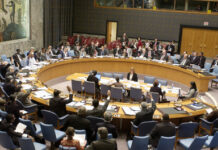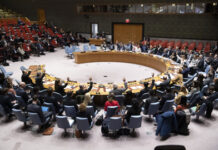Photo credit: DiasporaEngager (www.DiasporaEngager.com).
Background
Climate and environmental change are critical global challenges with far-reaching effects on economies and labour markets, particularly in developing countries. Policy initiatives aimed at transitioning from carbon-intensive production affect labour markets in multiple and complex ways, creating new jobs and phasing out others, and changing what skills are in demand.
Understanding these complex interactions between the labour market and climate change and environmental sustainability measures requires the use of a range of data sources and methodologies to build an analysis that can serve policymakers and other stakeholders. To reach this goal, the International Labour Organization (ILO), in collaboration with Genesis Analytics, developed guidelines for undertaking green employment diagnostics at the country level, supporting a just transition.
The guidelines, complemented by an overarching ILO framework for employment diagnostics, aim to enhance the understanding of the interplay between the environment, economy and employment, and the dynamics driving poverty and inequality. Further, they highlight how to analyse the effects of climate change and the transition to environmental sustainability on the labour market, and provide evidence-based approaches to identify challenges and opportunities for sustainable pathways towards productive employment for all in low- and middle-income countries.
Co-hosted by the Employment, Labour Markets and Youth Branch (EMPLAB) and the Action Programme on Just Transitions, this webinar will focus on the Guidelines on Green Employment Diagnostics.
Objectives:
- To highlight the importance of analysing the interplay between environmental, social, and economic change, drawing on data to identify policy options, and
- To promote sustainable and inclusive national employment policies that ensure coherence with climate and environmental policies and strategies.
The event brings together experts and stakeholders involved in applying employment, economic, and environmental diagnostics in a range of national contexts, and stakeholders leading employment policy development processes.
The webinar is open to all participants invested in promoting a just transition in the context of climate and environmental change and appropriate policies, in particular, representatives from government, industry and other actors involved in employment policy with a focus on green jobs and skills for green jobs, as well as social partners.
Agenda
Moderator: Sher Verick, ILO
Opening remarks
- Reflecting on the critical role of employment policy in national responses to climate and environmental change and why such diagnostics are needed – Sangheon Lee, Director, Employment Department, ILO (5 mins)
- Green employment in the context of a Just Transition to sustainable economies and societies – (TBC) Moustapha Kamal Gueye, Director, Just Transitions Action Programme, ILO (5 mins)
Presentation
- Green Employment Diagnostics for Just Transitions guidelines, their accompanying Excel tool and the pilot country study (Mozambique) – Dr Marcella Tarazona, Partner, Climate Finance and Economics practice, Genesis Analytics; and Davy Rutajoga, Associate, Climate Finance and Economics practice, Genesis Analytics (20 mins)
Discussants
- Understanding change in economic, labour market and poverty dynamics in times of climate and environmental change – Dr Elina Scheja, Chief Economist, Swedish International Development Cooperation Agency (Sida) (10 mins)
- Environmental and climate challenges in Mozambique and opportunities for skills and employment in policy responses. Constituent Representative, Mozambique (10 mins)
- The effects of climate change on Morocco’s economy and the labour market, with a focus on drought, agricultural and dependent sectors – Dr Ayache Khellaf, Secretaire Général, Haut- Commissariat au Plan, Royaume du Maroc (10 mins)
Q&A (25 mins)
- Participants will be invited to share their questions and perspectives during Q&A.
Working languages
French and English – Interpretation will be provided.
Source of original article: International Labour Organization (www.ilo.org).
The content of this article does not necessarily reflect the views or opinion of Global Diaspora News (www.GlobalDiasporaNews.com).
To submit your press release: (https://www.GlobalDiasporaNews.com/pr).
To advertise on Global Diaspora News: (www.GlobalDiasporaNews.com/ads).
Sign up to Global Diaspora News newsletter (https://www.GlobalDiasporaNews.com/newsletter/) to start receiving updates and opportunities directly in your email inbox for free.
































